Post-Election Analysis: Trump’s Tax Plans and Economic Impact
Join hosts Kyle Hulehan and Erica York in this episode of The Deduction as they break down the US tax policy implications of Donald Trump’s next presidential term.


Welcome to The Deduction, a Tax Foundation podcast and your guide to the complicated world of tax and economics.
From the impacts of tariffs and trade wars to debates over who pays and how much, each episode, our experts untangle another aspect of the tax code.
Apple Podcasts Google Podcasts Spotify
Castbox Stitcher Amazon Music RSS Feed
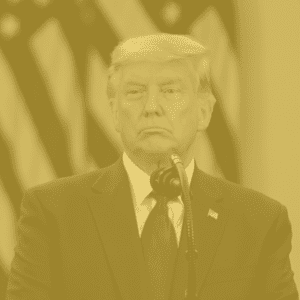
Join hosts Kyle Hulehan and Erica York in this episode of The Deduction as they break down the US tax policy implications of Donald Trump’s next presidential term.

Neither presidential candidate has a perfect tax plan. But what changes could Trump and Harris make to their respective tax plans to better serve American workers and the economy? In this episode, we dissect their plans and provide practical solutions for improvement.
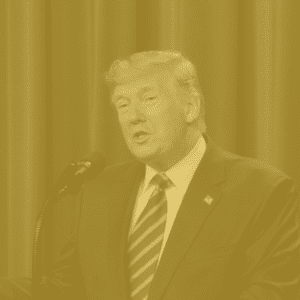
While tax policy was almost nonexistent in the first debate between Vice President Kamala Harris and former President Donald Trump, this episode will explore each candidate’s latest proposals in greater depth.

Tariffs are a hot topic this election cycle for both President Biden and former President Trump. But why are tariffs so popular despite their economic downsides?

Financial literacy is a problem that educators around the country are trying to tackle. Today, we’re speaking with Jed Collins, a former NFL player, who is leading the charge in the financial education arena by guiding high school and college students, as well as professional athletes, through the world of finance.

One year after its enactment, there are concerns about the Inflation Reduction Acts overall fiscal impact, the additional complexity it introduces to the tax system, and the sustainability of its initiatives.

Late last year, over 130 countries agreed to a global minimum tax, a purported end-all and be-all to the “race to the bottom.” But this policy is complex, and countries are already struggling to implement these new rules. We talk through how this policy came to be, identify where problems are beginning to arise, and dispel some common myths about this emerging new tax system.

The cost of gas is going up. To address this, policymakers have proposed suspending the gas tax. But could this actually make matters worse? We discuss why suspending the gas tax might be a mistake and what lawmakers could do to help with the rising costs of gas.

The expanded Child Tax Credit from the American Rescue Plan was touted as a once-in-a-lifetime achievement toward reducing child poverty. But it was passed as a temporary tax measure. Temporary tax policy makes tax filing confusing, and the IRS has shown that it isn’t able to keep pace with being a social administrator and a tax collector. We discuss what taxpayers need to know about the ever-changing Child Tax Credit and how it may impact taxpayers this spring.

After a whirlwind of cuts and reforms in 2021, it looks like 2022 might be an even bigger year for state tax codes. Republican and Democratic governors alike used their annual State of the State addresses to call for tax reform, and there is already serious momentum from state lawmakers nationwide to get the job done. We discuss why states are looking to make so many tax changes now and how these proposals might play out in statehouses.

The 2022 tax filing season is about to begin. With expected delays, pandemic-related troubles, and a backlog of over 8 million unprocessed returns from the 2021 tax filing season, Garrett Watson joins Jesse Solis to discuss what all these troubles will mean for taxpayers in what is shaping up to be a chaotic spring.

New research shows that the United States had the second largest fiscal response to the COVID-19 pandemic globally. But did this magnitude of stimulus have the economic impact policymakers were hoping for?

Senior policy analyst Garrett Watson joins host Jesse Solis to discuss the Build Back Better Act’s prospects and what tax changes—ranging from the SALT deduction to the Child Tax Credit—could change in order to gain enough support for passage.

Infrastructure has made its way across the finish line, but the tax debate is far from over on Capitol Hill. Senior policy analyst Garrett Watson joins host Jesse Solis to walk us through the latest iteration of Democrats’ trillion-dollar reconciliation package and the myriad tax changes that are being proposed to finance this deal.
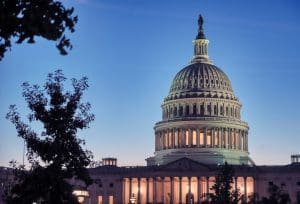
President Biden and Congressional Democrats introduced a scaled-back proposal of their reconciliation package, with House leadership saying they hope to vote on this new trillion-dollar package ASAP. We talk through what made it into the deal, what was cut, and what the impact of these tax changes would be.

As of 2020, there were 448 million active cell phone and wireless plans in the U.S. than there were Americans. The taxes on those plans brought in approximately $11.3 billion and constituted a record 24.96 percent of the cost of an average cell phone bill. Explore why cellphone taxes are climbing, the places they’re the highest, the consumers they impact the most, and how things can be improved.
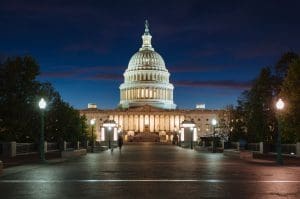
Federal policy is hard. Federal health care policy during reconciliation while governing with razor-thin margins is really, really hard. We break down the debate on Capitol Hill over drug pricing and what the tradeoffs would be of having the federal government set prescription drug prices.
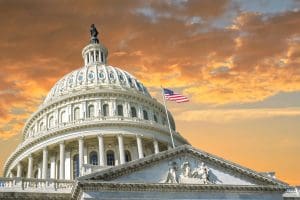
We discuss where the reconciliation package on Capitol Hill stands and talk through recent Tax Foundation modeling, which found that the plan may not have the economic boost its proponents have claimed.

Reconciliation. One word that drives D.C. crazy, yet has been the way some of Congress’s most monumental bills have become law. We discuss why this complex budget process is back in the mix as Congress gears up to advance President Biden’s multi-trillion-dollar tax agenda.

How should policymakers view crypto? How big is the issue of tax evasion in the cryptocurrency market and what can realistically be done to curb it? Is it possible to design a rational tax system around what, at times, can appear to be a less-than-rational market and, if so, what should it look like?

Learn about the tax gap, what it is, how the U.S. compares to other countries, and recent proposals aimed at closing it. We also explore how much revenue could actually be raised through increased tax enforcement, the current challenges the IRS faces, and how stronger enforcement could impact taxpayers at large.

On this episode of The Deduction, host Jesse Solis and Senior Policy Analyst Katherine Loughead explore how stronger-than-expected revenues and increased workplace flexibility have led to a wave of reforms aimed at enhancing tax competitiveness in states around the country.

If you’ve read any headlines in the last few months, you’ve no doubt heard about the semiconductor shortage gripping global supply chain—and if you’ve tried to buy anything from a toaster to a car, you’ve witnessed it firsthand. But what’s really driving today’s crisis, can the U.S. manufacture its way out of it, and what role does tax and economic policy have to play in all this?

One of the hottest topics in the tax world today is the recent announcement by G7 finance ministers that they would support enacting a new, 15-percent global minimum tax. We dive into the economic and political implications and how such a tax would impact global economies, revenues, and real people.

Across the U.S., policymakers of both parties have developed a strong interest in taxing large technology companies through digital advertising taxes, social media taxes, and data taxes. Join Tax Foundation’s Daniel Bunn and Jared Walczak as they untangle the complex and sometimes contradictory world of state digital taxes.

On this episode of The Deduction, we speak with Pam Olson, Tax Foundation Board Member and Consultant on Tax Policy Services at PwC, about the tax on Global Intangible Low Tax Income, or “GILTI.” In 2017, GILTI was implemented as a minimum tax designed to disincentivize U.S. companies from shifting profits overseas, but it doesn’t work how drafters intended, and now President Biden has proposed doubling it.